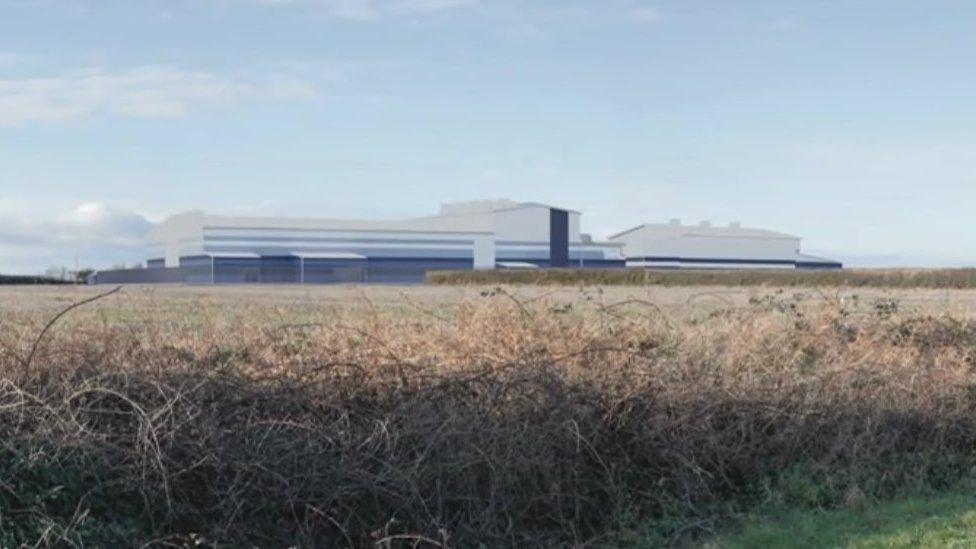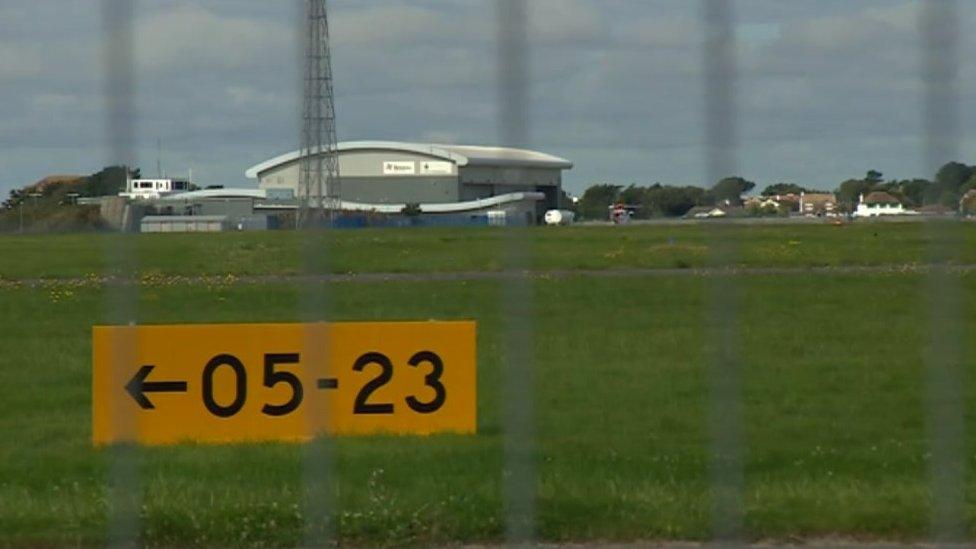France-UK undersea cable plans 'to go ahead'
- Published

The plans include building a substation at the airfield
Plans for an undersea electricity cable linking France and the UK will go ahead despite claims the proper planning procedures were not followed, the government has confirmed.
The cable will run 120 miles under the English Channel from Caen, Normandy, to Solent Airport in Hampshire.
Fareham Borough Council owns the airfield and approved National Grid's outline plans earlier this year, external.
The government said a verbal agreement on the process had been broken.
However, the government has said it would not overturn the decision for the planned undersea cable and a substation at the former Daedalus airfield.
A detailed planning application has since been submitted to the planning authority.

Concerns have been raised that the electromagnetic fields from the cable could interfere with aircraft navigation at the airfield
The government said it had written to the council expressing concerns it broke a verbal agreement to allow the government time to consider whether it should take charge of the planning process when considering the so-called IFA2 project.
Conservative council leader Sean Woodward said: "I don't know where any of this has come from.
"There was never any agreement - written or verbal - that the planning decision wouldn't be issued."
Gosport Conservative MP Caroline Dinenage said: "We obviously feel really concerned that decision was taken without any real consideration for people who have to live by this 18m-high [substation]."
Concerns have also been raised that the electromagnetic fields from the cable, running close to the runway, could interfere with aircraft navigation.
The council said live cable tests would be carried out in September and if there was evidence of an adverse affect the project would not go ahead.
National Grid said it was confident IFA2 would "successfully co-exist" with operations at the airport and "would not conflict with aerodrome safeguarding criteria".